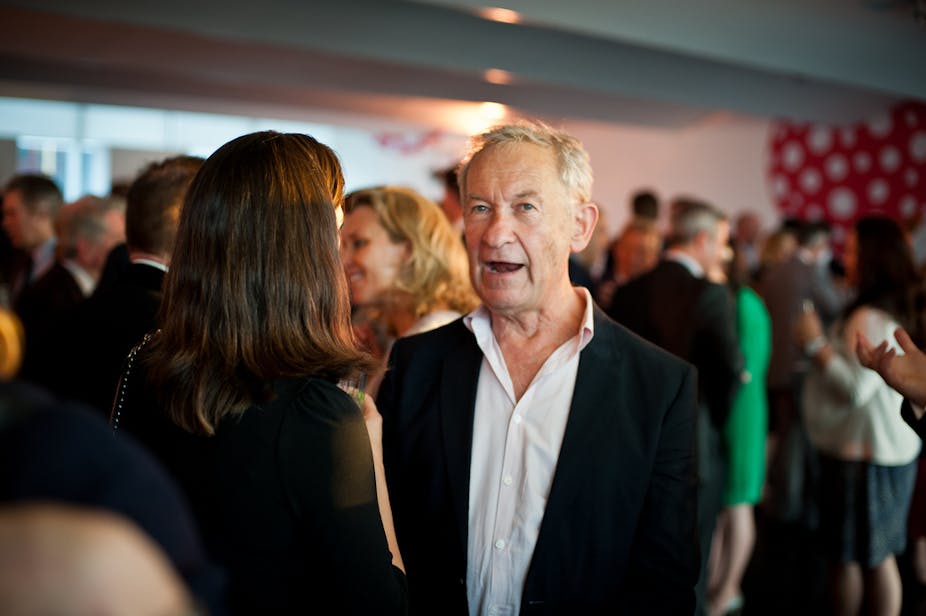In nearly 40 years of teaching Jewish Studies at university the course I found hardest to deliver was my first-year “Introduction to Judaism”. It didn’t get any easier: the more I learned, the more I agonised over what to say. It was not just the facts and figures I had to master. It was the selection: what to put in, what to leave out. How to make generalisations that would stand up to scrutiny. How to convey the big patterns of history in language that would grab the students’ attention, and yet be historically robust.
Only someone who has tried to do this can have the faintest idea how difficult it is. Simon Schama made a remarkably good fist of it in The Story of the Jews. There were few howlers, and this in itself is an achievement for someone who is not an academic specialist in the field. The big picture he painted was pretty standard, though nicely illustrated by arresting and unusual materials – hardly surprising since, as the footnotes of his book show, it rests on solid scholarship. In broad outline it didn’t differ much from what I offered to my classes, and certainly if I were still teaching my “Introduction” I would urge my students to watch these programmes and read the book.
There were times when I would have differed in my judgement. For example, he projected too much the lachrymose view of Jewish history and drew too sharp a contrast between the experience of Jews under medieval Islam (generally good), and their experience in Christendom (horribly bad). His understanding of the role of the Apostle Paul in the parting of the ways between Christianity and Judaism was clichéd and outdated, his grasp of Jewish messianism questionable.
I’m not sure he was clear in his own mind what story he was trying to tell. Was it the traditional Jewish myth of salvation which Jews tell to make sense of their world, or that story critiqued from the standpoint of scholarship, or his own very personal take on Jewish history? He oscillated confusingly. But these were all points on which we can agree to differ.
Engaged emotions
The presentation was superb: Schama’s emotions were engaged, and sometimes barely under control, but this made for gripping television. The photography and graphics were stunning. And his command of vivid speech, the arresting phrase, the big idea, allowed him to carry off a mode of delivery which had him for long stretches talking alone to camera.
But what about balance? Even before the series finished some were protesting that he was being allowed to present propaganda for the State of Israel, that room should be given to challenge his claims. Certainly, I would regard a narrative such as this as only a starting point, a first-order exposition. In second and third year classes I took my first-year story of the Jews and deconstructed it, challenging it, presenting counter-evidence, complicating the picture. But to expect this of a television series is unreasonable.
So long as a well-informed, well-argued case is advanced with honesty and integrity (as Schama did) it should be allowed to stand on its own two feet. Give people time to ponder and digest it. No-one who followed this series could fail to be educated by it. If you disagree, have the courtesy to sit back and feel the force of the opposition case. It may do you good to be reminded that the opposition too has arguments, and don’t be so patronisingly worried that Joe Public will be led astray. Joe Public is remarkably shrewd, and can usually sniff out bias and special pleading: I doubt if he will get much of a whiff of it here.
Hawks watching
The final programme was the most impressive of all: the tone was nearly pitch-perfect, the sensitive issues treated with knowledge, balance and humanity. The problem is that discourse about the Israel-Palestine conflict has reached such a low that each side is watching like a hawk to stop the other getting an “unfair” advantage. Each wants the other’s views, if not stifled, at least immediately shouted down.
The founding of the State of Israel is integral to the Story of the Jews, and a moral and historical case can be made for Zionism. It is timely that some on the Left have been reminded of this. It is the BBC’s responsibility to try to balance things out over the longer term, and doubtless, as in the past, so in the future, they will air programmes and opinions that put other points of view. The BBC is accused of bias by both the pro-Israel and the anti-Israel lobbies. The fact they are getting it in the neck from both sides suggests they are getting it roughly right.

